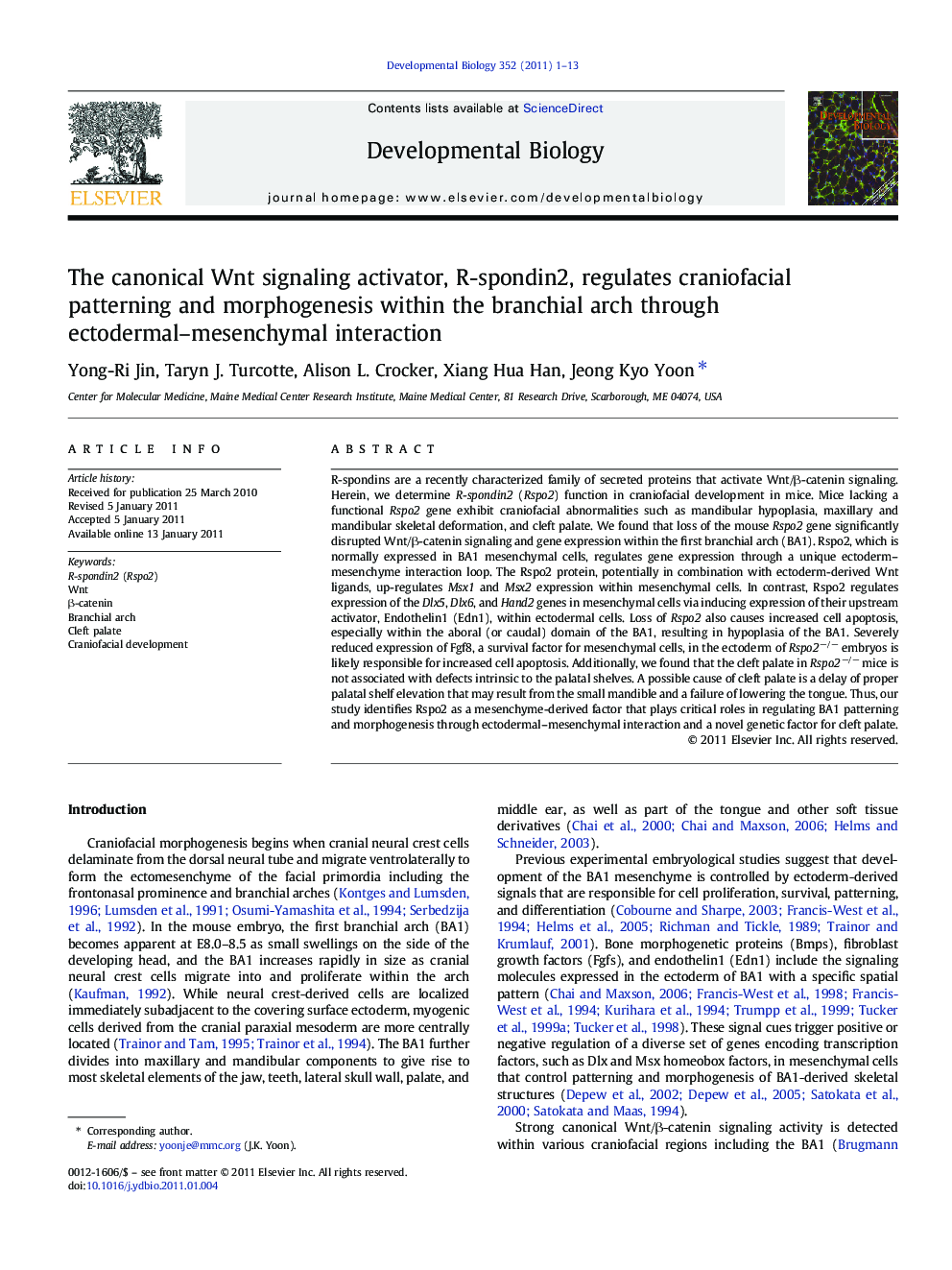| کد مقاله | کد نشریه | سال انتشار | مقاله انگلیسی | نسخه تمام متن |
|---|---|---|---|---|
| 2173531 | 1093730 | 2011 | 13 صفحه PDF | دانلود رایگان |

R-spondins are a recently characterized family of secreted proteins that activate Wnt/β-catenin signaling. Herein, we determine R-spondin2 (Rspo2) function in craniofacial development in mice. Mice lacking a functional Rspo2 gene exhibit craniofacial abnormalities such as mandibular hypoplasia, maxillary and mandibular skeletal deformation, and cleft palate. We found that loss of the mouse Rspo2 gene significantly disrupted Wnt/β-catenin signaling and gene expression within the first branchial arch (BA1). Rspo2, which is normally expressed in BA1 mesenchymal cells, regulates gene expression through a unique ectoderm–mesenchyme interaction loop. The Rspo2 protein, potentially in combination with ectoderm-derived Wnt ligands, up-regulates Msx1 and Msx2 expression within mesenchymal cells. In contrast, Rspo2 regulates expression of the Dlx5, Dlx6, and Hand2 genes in mesenchymal cells via inducing expression of their upstream activator, Endothelin1 (Edn1), within ectodermal cells. Loss of Rspo2 also causes increased cell apoptosis, especially within the aboral (or caudal) domain of the BA1, resulting in hypoplasia of the BA1. Severely reduced expression of Fgf8, a survival factor for mesenchymal cells, in the ectoderm of Rspo2−/− embryos is likely responsible for increased cell apoptosis. Additionally, we found that the cleft palate in Rspo2−/− mice is not associated with defects intrinsic to the palatal shelves. A possible cause of cleft palate is a delay of proper palatal shelf elevation that may result from the small mandible and a failure of lowering the tongue. Thus, our study identifies Rspo2 as a mesenchyme-derived factor that plays critical roles in regulating BA1 patterning and morphogenesis through ectodermal–mesenchymal interaction and a novel genetic factor for cleft palate.
Research Highlights
► Rspo2, potentially in combination with ectoderm-derived Wnts, regulates Msx1/2 genes within the first branchial arch (BA1).
► Rspo2 regulates Dlx5/6-Hand1/2 genes within the BA1 in an endothelin-dependent manner.
► Rspo2 is a novel genetic factor for cleft palate in mice.
Journal: Developmental Biology - Volume 352, Issue 1, 1 April 2011, Pages 1–13